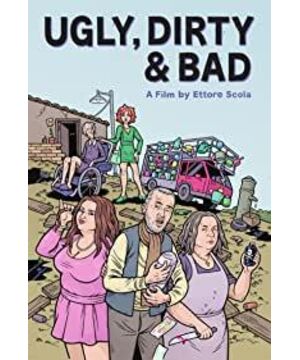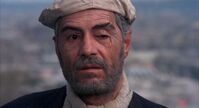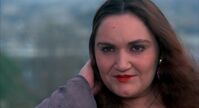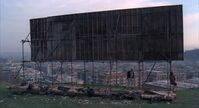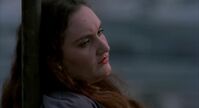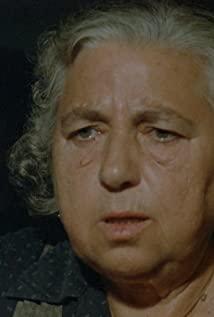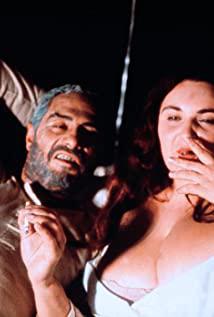With so many adjectives, it is nothing more than describing an odd family. If you want to sum it up in one word, I think it might be: life.
The one-eyed father sleeps with a shotgun in his arms every day, and changes the hiding place of the money jar every day, fearing that a dozen people in the family will steal the money. Four generations living in the same house is an extreme "same house". People sleep almost on top of each other, brothers and their wives have sex as if no one else is around, incest between families is sparse and common, and grandma sits in a wheelchair all day watching English educational films. Their common property was a crumbling paper shack, squatting like poisonous weeds on the heights of the Roman ghetto. The neighbors around are also people at the bottom of society, such as a mother and daughter who are proud of taking nude photos.
The domineering miser father, Jia Qinduo, was reluctant to let his family share his savings and watched three generations of children struggle in poverty. There is a son who wants to be a bel canto singer, and a son who wants to open a barber shop, but he is still stubborn. There are also sons who go to work as female prostitutes and are scolded by their fathers.
But Jia Qin Duo has a sudden sadness. So he fell in love with a fat whore who was a natural fit for him in terms of rudeness, and took her home. The wife understood one thing from the witch: instead of cursing his eyes, arms, and testicles, let him die.
So, the whole family was dispatched, cutting the bloody raw meat, and planning a lunch that poisoned the head of the family. But after Jia Qinduo realized that he had swallowed a pound of rat poison, he stepped on the bicycle and left, fell on the dirty seaside, and was still pedaling subconsciously. Then he picked up the pump and poured the seawater into his throat, as if swallowing. Gun suicide. The filming and acting of this scene are shocking, but in fact there is just an incredible truth.
Garcinto is not dead. Instead, they set the house on fire. Of course, no one was hurt.
He also viciously sold the land, trying to make money and then watching the whole family homeless and having fun with his new lover.
In the end, everything returned to its original state, and the family lived together like livestock.
But the final shot was jaw-dropping. The skinny teenage girl with her belly bulging for no reason, her face indifferent and serene, repeated the work of fetching water every morning. You know that although it has returned to its original state, there are always individuals undergoing drastic changes.
Dilapidated slums are always full of these derogatory terms. I think of Akira Kurosawa's ruined movie. The vulgar Japanese-speaking housewife rolled up her kimono sleeves and made a presumptuous expression in front of the public water tap. Doing dirty love in a shantytown proves the ethical black hole where the poor world returns to its nature. But in such a scene, the occasional sudden sadness and love are probably too heavy to bear.
The mid-range turns into a panorama as the sprawling family sits on the rickety grocery truck, with a shocking red on a tawdry base, and the bumps are so violent that the family appears to be in a shared euphoria.
Poverty is not the only cause of this bizarre farce. Poverty causes the love and attachment between family members to be torn apart. This does not emphasize the terrible power of poverty, but just contrasts the weakness and vulnerability of the so-called "love". Cruelty, vulgarity, indifference, vulgarity, miserliness in human nature. . . . Finally, when you watch this movie, you find that only a collection of derogatory adjectives can be used to describe the story, and even all your sensibility and imagination that it seduces. In this sense, it is extreme realism.
View more about Ugly, Dirty and Bad reviews


